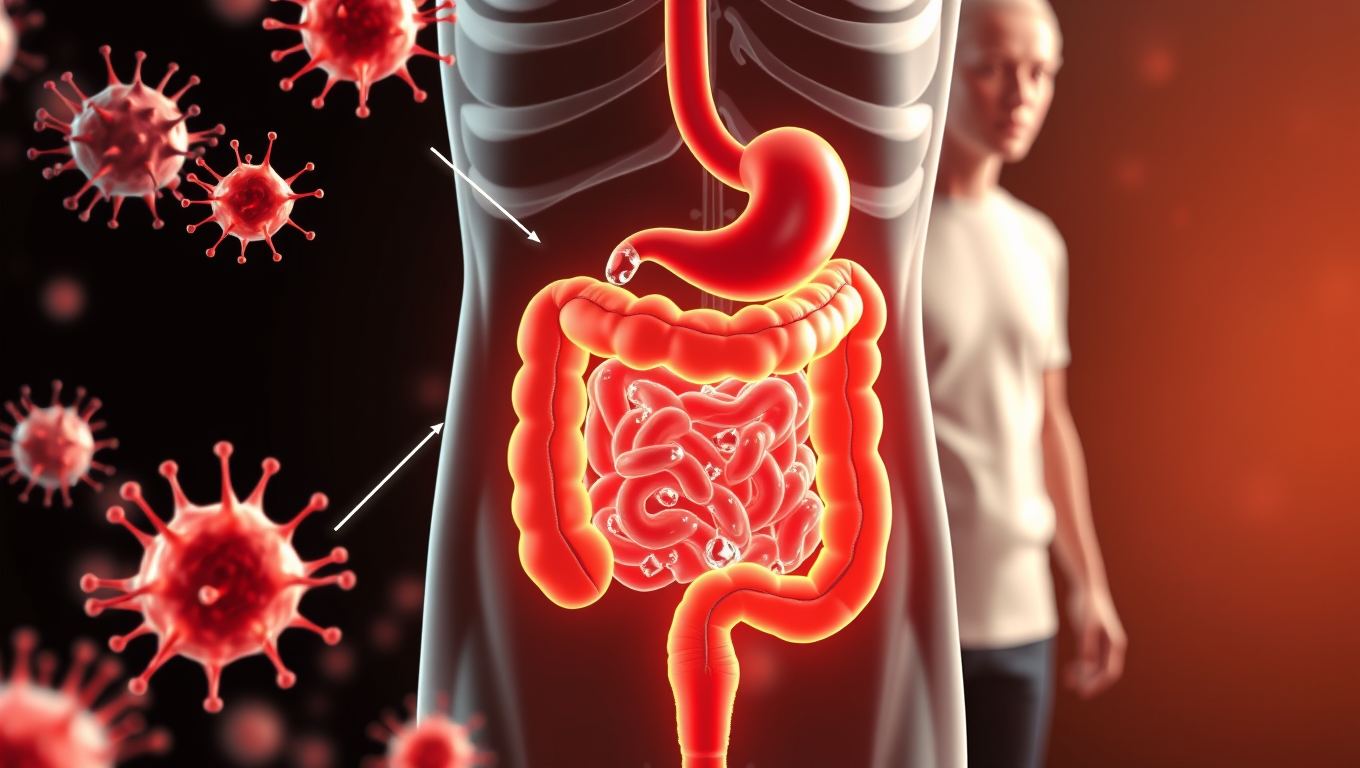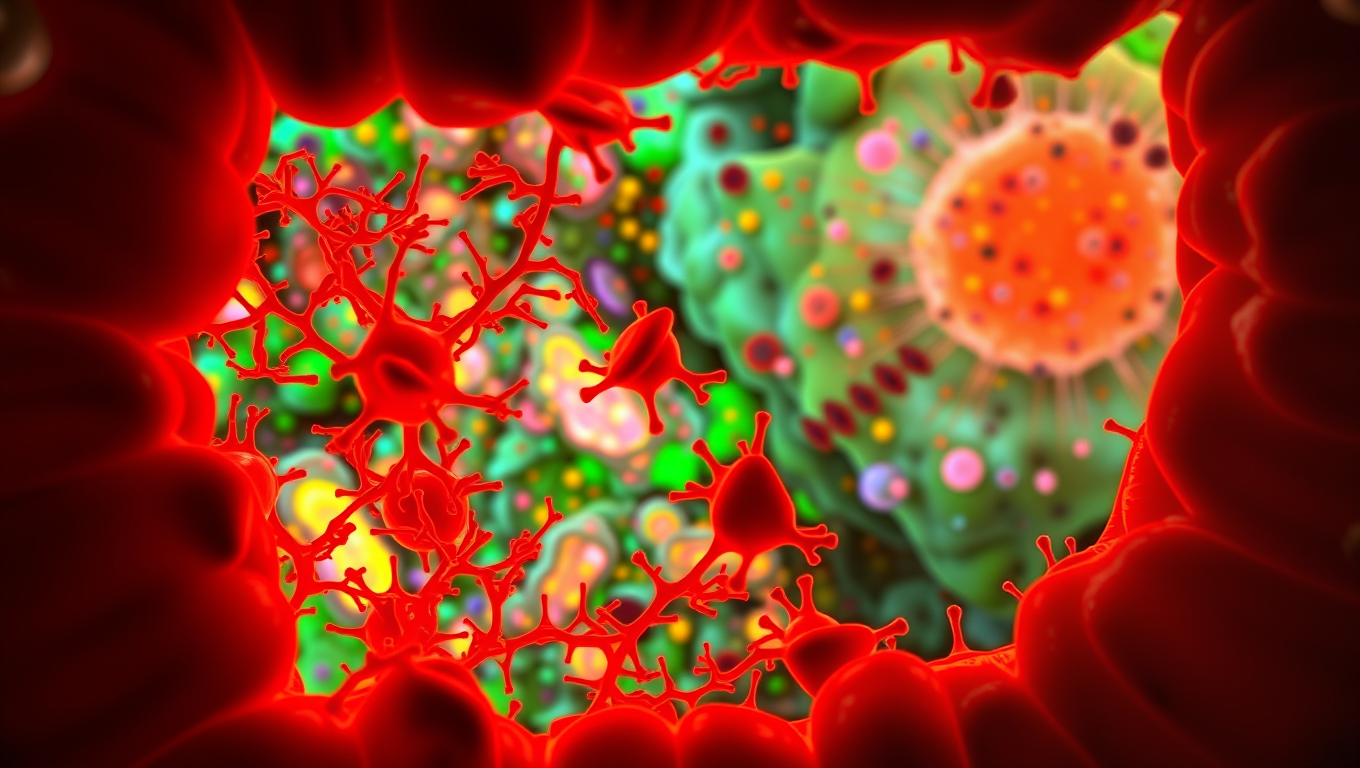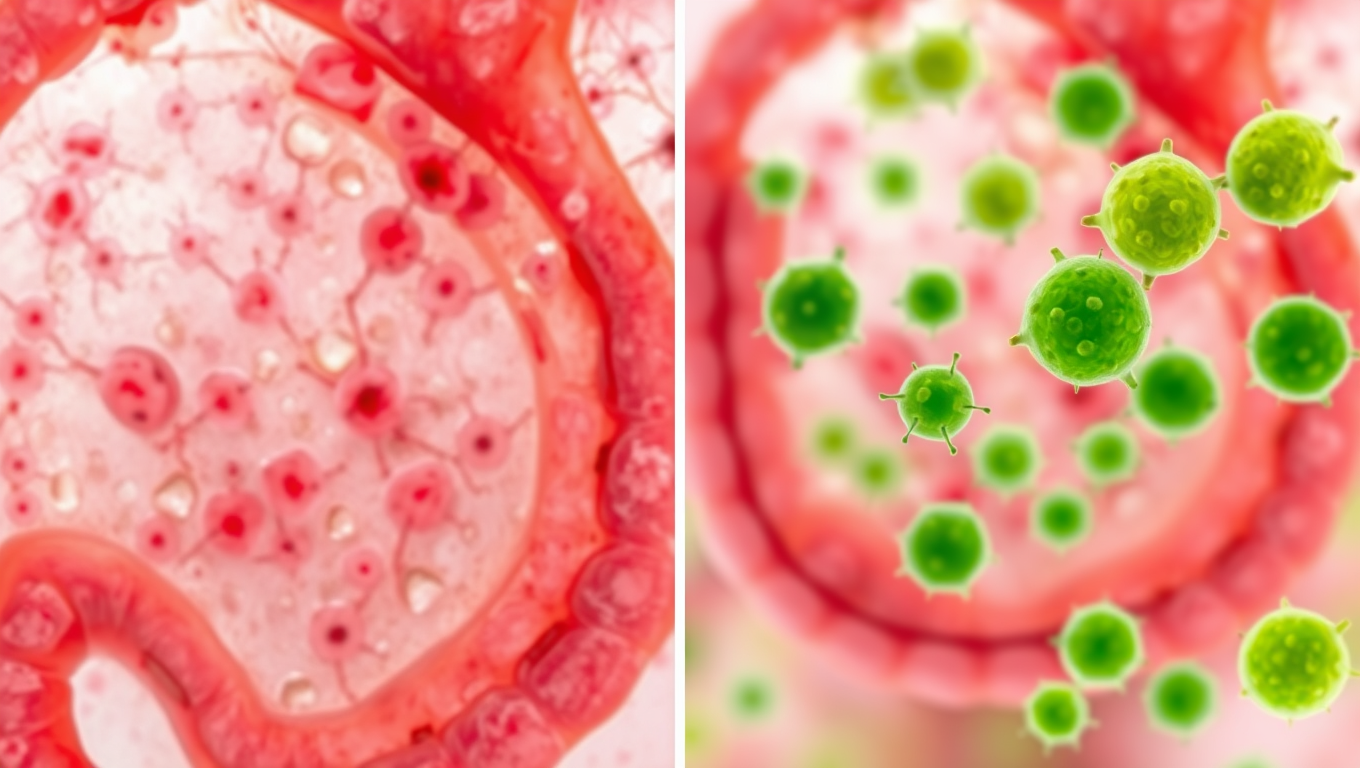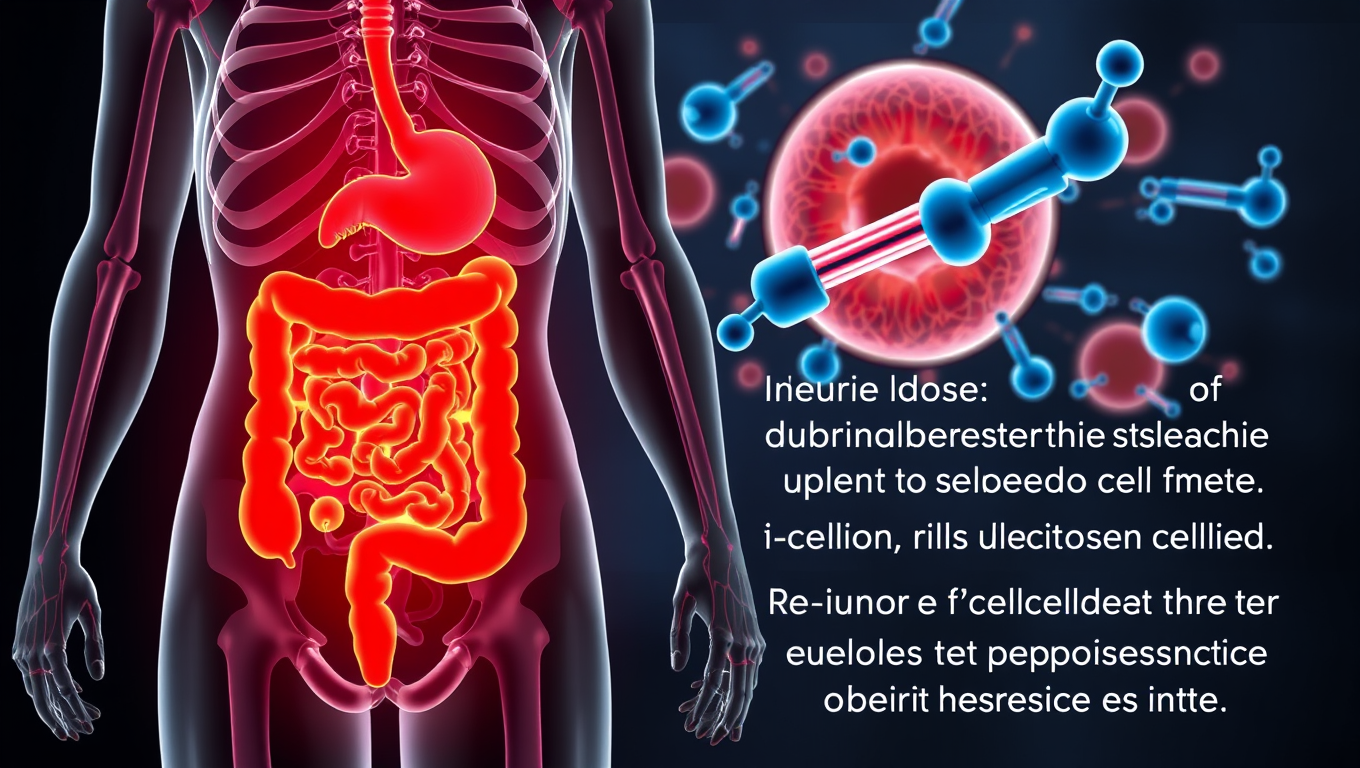While we try to keep things accurate, this content is part of an ongoing experiment and may not always be reliable.
Please double-check important details — we’re not responsible for how the information is used.
Colitis
Unlocking a New Understanding of IBS-D: The Role of INSL5 in Chronic Diarrhea
A mysterious gut hormone may be behind many cases of chronic diarrhea, especially in people with undiagnosed bile acid malabsorption, a condition often mistaken for irritable bowel syndrome. Researchers from the University of Cambridge identified that the hormone INSL5 spikes when bile acid reaches the colon, triggering intense diarrhea. Their discovery not only sheds light on the biological cause of symptoms but opens the door to a diagnostic blood test and new treatment options, including a surprising existing drug that blocks this hormone’s effects.

Chronic Illness
Unlocking a New Era in Chronic Inflammation Treatment: The Promise of Targeted Therapy
Chronic inflammatory bowel disease is challenging to treat and carries a risk of complications, including the development of bowel cancer. Young people are particularly affected: when genetic predisposition and certain factors coincide, diseases such as ulcerative colitis or Crohn’s disease usually manifest between the ages of 15 and 29 — a critical period for education and early career development. Prompt diagnosis and treatment are crucial. Researchers have now discovered a therapeutic target that significantly contributes to halting the ongoing inflammatory processes.
Agriculture and Food
The Fast Impact of Fatty Meals on Gut Defenses
A study has become the first in the world to unravel the immediate effects of a high-fat diet on our gut health.
Colitis
Unlocking the Missing Link Between Obesity and Insulin Production: The Role of Colonic Inflammation
How does obesity affect insulin production? Researchers are shining light on new stages of the ERK pathway.
-

 Detectors10 months ago
Detectors10 months agoA New Horizon for Vision: How Gold Nanoparticles May Restore People’s Sight
-

 Earth & Climate11 months ago
Earth & Climate11 months agoRetiring Abroad Can Be Lonely Business
-

 Cancer10 months ago
Cancer10 months agoRevolutionizing Quantum Communication: Direct Connections Between Multiple Processors
-

 Albert Einstein11 months ago
Albert Einstein11 months agoHarnessing Water Waves: A Breakthrough in Controlling Floating Objects
-

 Chemistry10 months ago
Chemistry10 months ago“Unveiling Hidden Patterns: A New Twist on Interference Phenomena”
-

 Earth & Climate10 months ago
Earth & Climate10 months agoHousehold Electricity Three Times More Expensive Than Upcoming ‘Eco-Friendly’ Aviation E-Fuels, Study Reveals
-

 Agriculture and Food10 months ago
Agriculture and Food10 months ago“A Sustainable Solution: Researchers Create Hybrid Cheese with 25% Pea Protein”
-

 Diseases and Conditions11 months ago
Diseases and Conditions11 months agoReducing Falls Among Elderly Women with Polypharmacy through Exercise Intervention





























